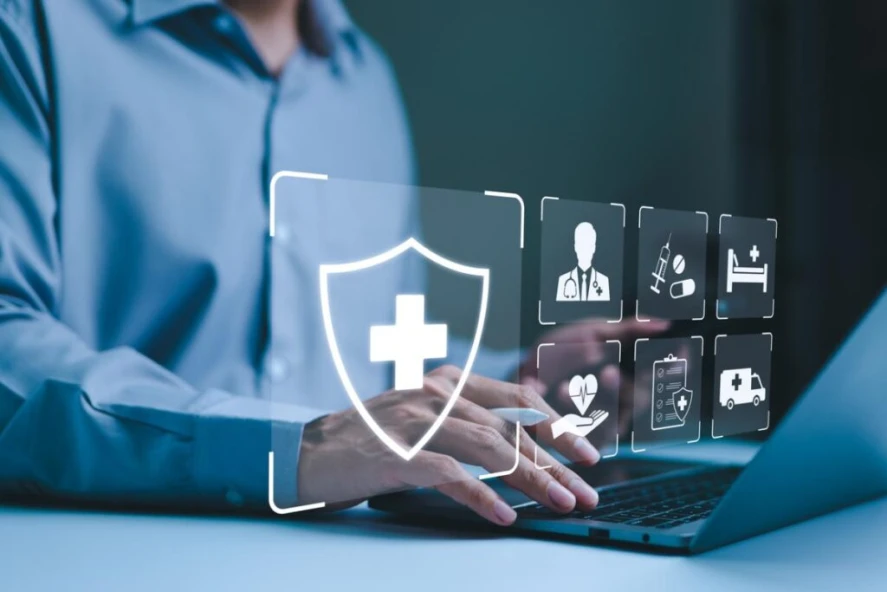The prescription of medications is strictly controlled and regulated by state and federal law. Failure to follow these laws can result in disciplinary action against professional healthcare providers and pharmacies. Disciplinary proceedings can sometimes lead to significant penalties, including losing your license. Suppose you are facing a complaint that someone has filed with your licensing board concerning the prescription of controlled medications. In that case, you likely need the advice and counsel of an experienced healthcare license defense lawyer.
The HHS and DEA Telemedicine Extension Rule
The U.S. Department of Health and Human Services (HHS) and the Drug Enforcement Administration (DEA) have issued a rule entitled “Third Temporary Extension of COVID-19 Telemedicine Flexibilities for Prescription of Controlled Medications.” Under some conditions, this rule allows medical practitioners to prescribe Schedule II-IV controlled substances via telemedicine or without an in-person consultation. The third extension of this rule is effective from January 1, 2025, to December 31, 2025.
This third extension of a more flexible standard allowing practitioners to prescribe controlled substances, as developed during the COVID-19 pandemic, is necessary for some reasons. First, it avoids a lapse in patient coverage by extending the flexible standard until the end of the calendar year. Second, it allows the HHS and DEA time to incorporate public comment into finalizing three proposed rules.
The Proposed Rules: Prescription of Controlled Substances via Telemedicine
The DEA issued the proposed rules on January 1, 2025, which include the following:
- Expansion of Buprenorphine Treatment via Telemedicine Encounter
- Special Registrations for Telemedicine and Limited State Telemedicine Registrations
- Continuity of Care via Telemedicine for Veterans Affairs Patients
According to the DEA, the proposed rules aim to make telemedicine as accessible as possible for patients. However, remember that the proposed rules are inapplicable to telemedicine visits in which the medical provider has already seen the patient in person on at least one occasion. The proposed rules apply only when a medical provider is prescribing controlled substances to a patient whom they have never seen in person.
Additionally, Texas state law concerning prescribing controlled substances via telemedicine still applies, notwithstanding the rule extension. For example, the Texas Medical Board (TMB) requires practitioners who remotely prescribe controlled substances to patients they have not seen in person and have a valid state medical license. Likewise, a Texas-licensed pharmacy may not fill these prescriptions issued by out-of-state practitioners, including those issued through telemedicine, without a plan approved by the Texas State Board of Pharmacy (TSBP) in place.
Expansion of Buprenorphine Treatment via Telemedicine Encounter
This proposed rule addresses patients’ ability to access buprenorphine treatment via telemedicine. Buprenorphine is a controlled substance used to treat opioid disorders. Under the proposed rule, patients can receive a prescription for buprenorphine for up to six months via telemedicine. Thereafter, patients needing continued treatment with buprenorphine must visit a medical provider in person.
Click to contact our professional license defense lawyers today
Special Registrations for Telemedicine and Limited State Telemedicine Registrations
This rule proposes special registrations that permit patients to receive prescribed medications via telemedicine without an in-person medical evaluation from a medical provider. The special registration would be available for medical providers who treat patients with Schedule III-IV controlled substances.
The proposed rule also establishes an Advanced Telemedicine Prescribing Registration for certain medical providers to prescribe Schedule II controlled substances through telemedicine. Medical providers must be board-certified in one of the following specialties to be eligible for this Registration:
- Psychiatrists;
- Hospice care physicians;
- Physicians rendering treatment at long-term care facilities; and
- Pediatricians.
This special registration would be for the prescribing of medications identified as the most addictive and prone to diversion to the illegal drug market. This regulation also would allow these specialized medical providers to issue telemedicine prescriptions for Schedule II-V medications.
Under the proposed rule, online platforms that match patients and medical providers for telemedicine will be required to register with DEA.
Finally, the proposed rule mandates the establishment of a national PDMP to help guard against abuse and diversion of controlled substances for illegal usage. Medical practitioners and pharmacies would have access to patients’ prescribed medication history in the national PDMP.
Complete a Case Evaluation form now
Continuity of Care via Telemedicine for Veterans Affairs Patients
The final proposed rule exempts medical practitioners with the U.S. Department of Veterans Affairs (VA) from the Special Registrations requirement outlined above. For instance, suppose a patient has an in-person medical examination with a VA provider. In that case, it will suffice for all further appointments with any VA provider to occur via telemedicine when prescribing controlled substances.
Get the Advice You Need About Your Medical or Pharmacy License
Misconduct allegations concerning the prescription of controlled medications can lead to the potential loss of your career. When you are facing this situation, you cannot risk navigating this complex situation alone. The healthcare license defense lawyers at Bertolino LLP help professionals like you defend themselves against disciplinary proceedings by their licensing boards. We can examine your circumstances and help you devise the most effective strategy to protect your license. Call us today at (512) 980-3751 or get more information about us online.
Call or text (512) 476-5757 or complete a Case Evaluation form





